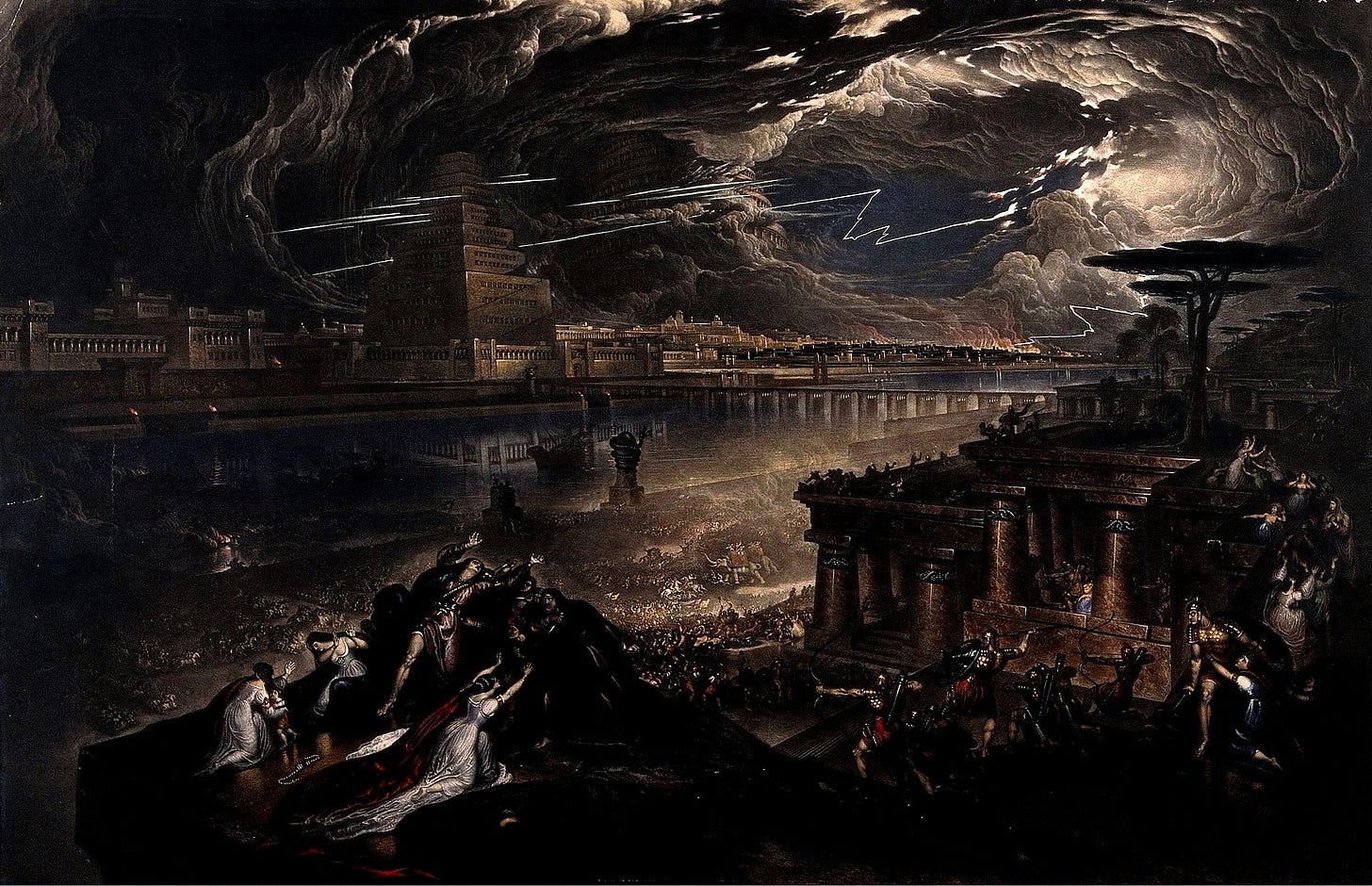Scott asked this question in response to the last post about the wrath of God:
In one of the quotes you provided, Origen says that the action of God’s wrath is to rebuke, chasten and improve. When I read the Old Testament, I struggle with applying this to a text like Isaiah 13, where God’s wrath is linked to some truly awful things like parents watching as their baby’s are dashed against the rocks. Given texts like this one, how do I not attribute horrible events in mine or my family and friend’s lives to God’s wrath?
He’s certainly right; Isaiah 13 does describe horrors:
9Behold, the day of the Lord comes,
cruel, with wrath and fierce anger,
to make the earth a desolation
and to destroy its sinners from it.
10For the stars of the heavens and their constellations
will not give their light;
the sun will be dark at its rising
and the moon will not shed its light.
11I will punish the world for its evil,
and the wicked for their iniquity;
I will put an end to the pride of the arrogant,
and lay low the haughtiness of the ruthless.
12I will make men more rare than fine gold,
and mankind than the gold of Ophir.
13Therefore I will make the heavens tremble,
and the earth will be shaken out of its place,
at the wrath of the Lord of hosts
in the day of his fierce anger.
14And like a hunted gazelle,
or like sheep with none to gather them,
every man will turn to his own people,
and every man will flee to his own land.
15Whoever is found will be thrust through,
and whoever is caught will fall by the sword.
16Their infants will be dashed in pieces
before their eyes;
their houses will be plundered
and their wives ravished.
These are unspeakable violences, all said to be the working of God in his wrath. Why has such a passage come to us as Scripture? In what way can we hear these words as the Word of God?
If we were trying to make sense of this text in historical/literal terms, we’d need to note first that this is an oracle against Babylon, not a theology of history or a treatise on divine providence. Isaiah is not philosophizing about how God is involved in what goes wrong in the world but prophesying Babylon’s fall.
Let me stress the point: we would need to take seriously that this is an oracle against Babylon, remembering what the prophet and his people have already suffered at the hands of an empire—the Assyrian regime—and its expansionist campaigns. And we’d also need to appreciate the fact that it is indeed an oracle, which was, in antiquity, a form of anti-imperial resistance, functioning something like protest music, political cartoons, and anti-war films do in our day.1
Knowing all that, we’d be better positioned to see how the violence depicted in the texts is mirrored back against the powers that have inflicted it, exposing the oppressors’ propaganda and provoking holy indignation—the spark of hope—in the oppressed.
Still, we need to make sense of the passage in theological/spiritual terms as well, because this oracle can and should be read as a witness to the truth that God does indeed oversee the events of history, including even the disastrous outworkings of sin to their devastating ends. The crucial question, then, is how, if at all, God is involved in those disasters and that devastation.
Keep reading with a 7-day free trial
Subscribe to Speakeasy Theology to keep reading this post and get 7 days of free access to the full post archives.




